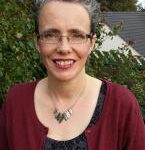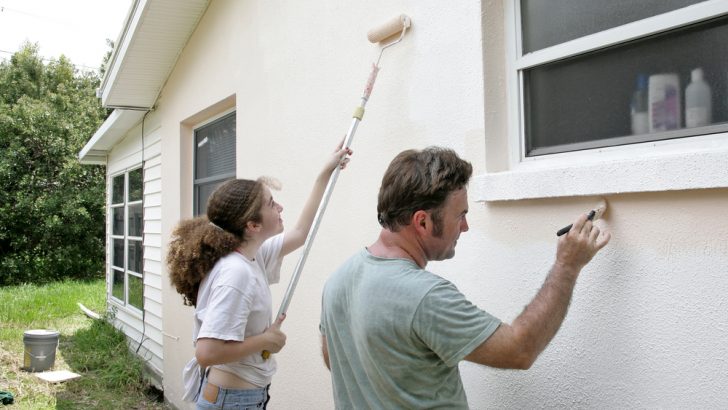We have decided to get the house painted. What has complicated the issue is the fact that our house is semi-detached and we knew that it would look better if our neighbours decided to get theirs painted as well.
Our neighbours have been living beside us now for a couple of years and in that time have done a huge amount of work to the house so painting the outside was certainly on their list of jobs to be done. We talked about it to Henrik and he agreed it made sense to go with one painter and one colour scheme. We left in colour books from a couple of paint companies.
The fun began when Henrik told me to go in to Violetta to discuss colours – he would continue to cut the grass outside given, he said, that he knew very little about such things.
It turned out the only word Violetta and I had in common was, ‘No!’. Violetta and Henrik are Polish and while Henrik is very fluent, Violetta has only limited English and my Polish is non-existent. It became clear very quickly that we had very different ideas when it came to painting the houses but without a shared language all we could do was disagree, without being able to explain why or explore a compromise. We cut short this first attempt and I later told Henrik we would need him the next time we sat down together to help us bridge the gap!
A shared language is vital if we are to be able to communicate. I have been thinking about that a lot lately. How as people of Faith do we communicate with people who have little or no concept of Faith?
There is a need to be able to take the core concepts of Christianity and express them in words and imagery that people understand. As we now know, that is not just for people outside the Church but for people within it as well. The phrase, “The Kingdom of God” came up in a homily last weekend and while I think it is vital that we speak about the Kingdom of God I did wonder what a lot of people make of that phrase. We need to unpack these things, not take for granted that they are understood.
That is a challenge to us as parents, to be able to talk to our children and young adults about Faith in a way that they can connect with. To be able to do that, we really need to understand Faith for ourselves.
There is a sense then in which we need all the advantages of being bilingual. We need to know the language of Faith. We need to be familiar and comfortable with ideas like incarnation, sacramental reality, paschal mystery, covenant, transcendence, discipleship, mission and, of course, the Kingdom of God. We need to make them our own if we are to be able to talk about them in the language of everyday.
Researchers suggest that speaking more than one language brings many benefits. It helps us to understand language and how it works. It helps us to think in more creative ‘outside the box’ ways and improves problem solving abilities. Those are surely skills that we need.
Our children and young adults are growing up in a world that to a large extent rubbishes Faith experience. How do we help our children to take ownership of their Faith and its relevance in their lives?
We are all faced with friends and family and acquaintances whose world view and values are strikingly different than our own. How do we engage in fruitful, respectful and honest conversation unless we have the bilingual advantage of speaking the language of Faith in the language of everyday?
Communication is vital – and on that note, with the help of Henrik, Violetta and I found that we actually agreed on quite a lot. The painter is at work as I write!


 Bairbre Cahill
Bairbre Cahill
